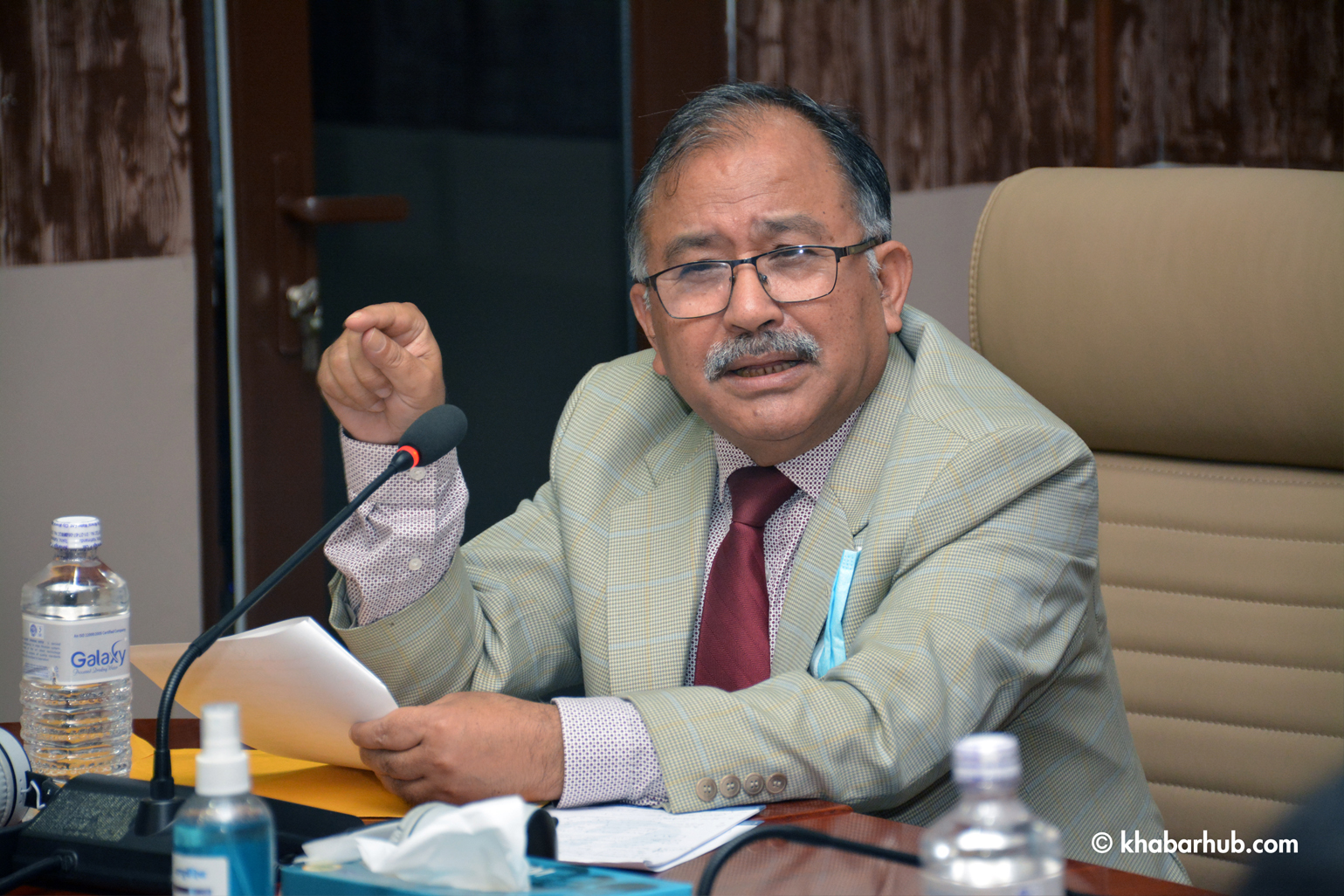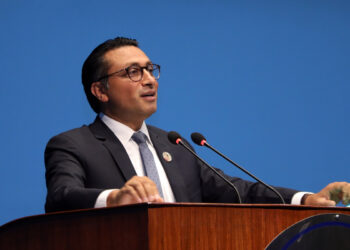Foreign policy is a critical concern in every domain, encompassing the safeguarding of our national existence, heritage, culture, and the pursuit of development. Urgently, we must forge a national consensus on foreign policy and chart a clear path forward.
While I do not claim to be an authority on foreign policy, I offer my perspective as a student. I believe that today’s foreign policy must be contextualized within the present realities. Yesterday’s approaches alone cannot meet today’s pressing needs.
We must objectively assess the imperatives, realities, and challenges of today. This requires a concerted effort to understand the foundation of our foreign policy.
We need to evaluate our consistency, credibility, coherence, and coordination in our foreign policy endeavors. It’s evident that our foreign policy has not always adhered to the ideal path.
Unfortunately, our foreign policy lacks thorough research regarding its productivity. To confront the challenges of today, we require both the courage and the capacity to make bold decisions.
Is our current foreign policy successful? How do we measure the success of a foreign minister? What criteria should we use for evaluating their effectiveness? We need to establish these foundations for the success of our foreign policy endeavors.
The crucial question is whether we can demonstrate the ability to address these challenges decisively or if we are simply adhering to tradition without daring to make bold and necessary changes.
We often invoke terms like non-aligned foreign policy, United Nations principles, and geopolitics, but the world has evolved.
Our national and international circumstances have changed dramatically. We face pressures on foreign relations, technology, trade, and transportation.
In light of these challenges, we must ask whether our current strategies, based on old values, are sufficient or if self-reflection is required.
Are we adequately prepared to face these new challenges? How many in-depth discussions and debates have taken place within our political circles regarding foreign policy formulation and decision-making? Our political stability is a crucial factor in shaping our foreign policy.
The longevity of our foreign ministers, secretaries, diplomats, and the continuity of our policies are administrative, managerial, resource mobilization, and capacity-related matters in the realm of foreign policy.
What are the overarching goals of Nepal’s foreign policy? Is it merely aimed at preserving stability, or does it aspire to do more?
Is it focused on sustaining power through political maneuvering, or does it seek to establish a foundation and define the nation’s long-term interests and work towards achieving them?
The state of our internal governance profoundly influences the respectability of our foreign relations. Our internal government’s integrity reflects on our foreign policy; corruption internally weakens our external relationships.
This is not just a matter of diplomatic rhetoric, language, or tradition; it’s an art form, where diplomacy transcends science. Are our diplomats proficient in articulation?
Does our Ministry of Foreign Affairs reflect this proficiency? Does our overall diplomatic demeanor demonstrate it? Are we prepared to reevaluate and adapt? Is it adequate to merely assign personnel to these roles? What do our partner countries truly require?
What is the nature of our relationships, their intimacy or sensitivity? What is our presence there, and should we assign individuals capable of handling these sensitive matters, or do we rely on convenient postings?
It is within this context that I find myself compelled to redefine and restructure Nepal’s foreign policy, taking into account all aspects, including communication, processes, and institutional development within the Ministry of Foreign Affairs.
To what extent does foreign policy drive our development? It encompasses more than just mitigating disputes and maintaining fraternal relations; it also involves achieving concrete objectives.
I personally know many capable diplomats, well-trained officers in the Foreign Service. They possess ample exposure and expertise, yet their opportunities for success seem limited. It’s regrettable that our foreign policy and diplomatic relations have become oriented towards mere subsistence.
How much influence have our foreign relations exerted in strengthening our economic ties and supporting the development of our tourism sector?
Have they effectively promoted Nepal on the international stage? Can our Ministry of Foreign Affairs provide timely responses to queries from foreign embassies? Should we express our willingness to cooperate, and should we demand accountability if such cooperation is lacking?
Continuing diplomatic relations in our current style will confine us to tradition and subsistence. Historically, Nepal had limited international relations, struggling to gain recognition on the global stage.
Even during those challenging times, our leaders played a pivotal role as a non-aligned nation, showcasing their personal capabilities and self-respect. They secured Nepal’s membership in the United Nations and maintained neutral relations.
Some embassies in Nepal do not even issue entry permits, requiring applicants to travel to Delhi. While we understand the inconvenience, it is puzzling that these countries maintain embassies and ambassadors in Nepal without facilitating entry permits.
Prithvi Narayan Shah himself was a remarkable foreign minister. He introduced the “two-stone yam” theory. Later, Nepal obtained membership in the United Nations.
Later, King Birendra’s efforts to promote Nepal as a Zone of Peace (ZoP) in 1975 faced challenges, as he struggled to secure the support of a South Asian nation, ultimately leading to the initiative’s failure. Unfortunately, this declaration failed to gain worldwide recognition and implementation.
Our forefathers prioritized sensitive foreign policy with utmost care. Even in recent times, as Nepal transitioned into a multi-party democracy, it did not actively seek recognition as an experimental nation. However, we must assess our successes and failures.
Is our current foreign policy successful? How do we measure the success of a foreign minister? What criteria should we use for evaluating their effectiveness? We need to establish these foundations for the success of our foreign policy endeavors.
Foreign policy should not remain in a state of permanent contraction. It should undergo contemporary reviews, infused with the courage and dynamism needed for change. Our democratic beliefs should be grounded in this principle.
Unfortunately, our foreign relations seem focused on transactional interactions, with inadequate attention given to the enduring pillars of Nepal’s foreign policy.
Foreign policy should play a substantial role in our trade, cultural development, and economic growth while fostering political stability. Regrettably, this appears to be lacking.
We should avoid allowing political alliances to cast shadows over our foreign policy. The priority of Nepal’s foreign policy should remain unwavering, regardless of the political party in power.
Our foreign policy values should be permanent and aimed at long-term goals. Strengthening our internal governance is vital, as foreign investment is contingent on the strength of our domestic infrastructure.
It’s not solely about what our diplomats say; it’s about tangible results. Governance reforms require unanimous agreement.
How many are capable of leading economic diplomacy, and how have they been appointed? In Nepal, we seem to have adopted a contradictory culture, engaging in economic diplomacy but failing to prioritize it in practice. This should not be the case.
This does not imply that foreign policy merely sustains diplomatic relations and requires a foreign ministry and ambassadors.
Closure of some embassies in Kathmandu or discontinuation of visa services that were being regularly being provided by the existing embassies in Kathmandu could become one of the problems faced by Nepali foreign policy and diplomatic service.
That needs urgent attention of concerned sectors and pursued towards reviewing it.
I believe that these issues should be addressed by our Ministry of Foreign Affairs and the Diplomatic Service. We should not continue closing embassies and discontinuing entry permit issuance.
We should view the Ministry of Foreign Affairs from a multifaceted perspective, encompassing not only the diplomatic service but also development, security, and various other aspects.
A multifaceted approach highlights the completeness, capability, and unique potential of our Ministry of Foreign Affairs to address the country’s challenges and make substantial contributions.
Despite our reliance on English as the primary language, we sometimes limit ourselves. However, my intention is not to diminish the current state of foreign affairs or its capabilities; I hold great respect for them.
I express these views in the hope of contributing to the national interest and enhancing the image of our political relations connected to the Ministry of Foreign Affairs and the Diplomatic Service.
How many diplomats do we have in foreign missions under the Ministry of Foreign Affairs? How many possess expertise in commercial matters?
How many are capable of leading economic diplomacy, and how have they been appointed? In Nepal, we seem to have adopted a contradictory culture, engaging in economic diplomacy but failing to prioritize it in practice. This should not be the case.
As a well-wisher, I firmly believe that our foreign policy requires a comprehensive review. We must pursue reforms in Nepal’s diplomacy and ensure that people can reap the benefits of these reforms, receiving uninterrupted and efficient services.
I am convinced that discussions and debates on foreign policy will contribute to building capacity and fostering greater accountability.
(Edited excerpt from the speech delivered by former Chief Justice Kalyan Shrestha at the closing ceremony of the program on Nepal’s foreign policy organized by Institute for Strategic and Socio-Economic Research (ISSR) in Kathmandu)









Comment